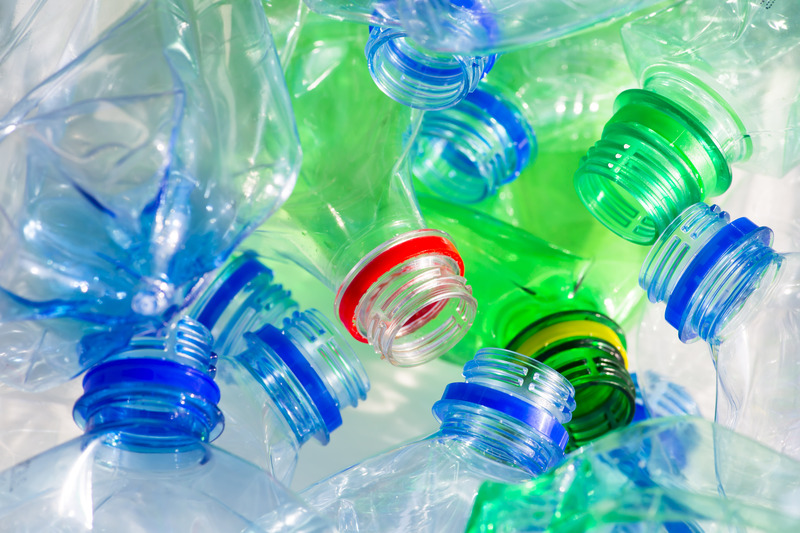Innovative Solutions for Handling PPE Waste Responsibly
In a world still recovering from the global pandemic, the demand for Personal Protective Equipment (PPE) such as masks, gloves, gowns, and face shields has skyrocketed. While PPE has been critical in curbing infection and saving lives, it has also introduced a new environmental challenge: PPE waste management. The growing accumulations of disposable masks and gloves in public areas, oceans, and landfill sites highlight an urgent need for innovative solutions for handling PPE waste responsibly.
This article will explore advanced, eco-conscious, and effective strategies for disposing of PPE waste, create awareness about sustainable alternatives, and introduce pioneering technologies that turn a crisis into opportunity.

Understanding the Scope of the PPE Waste Problem
Main Sources of PPE Waste
- Healthcare Sector: Hospitals, clinics, and other medical facilities are the primary generators of PPE waste due to widespread usage.
- Community Usage: Everyday use of masks and gloves by the public contributes significantly to global PPE disposal issues.
- Industrial and Commercial Spaces: Factories, offices, public transport, and hospitality services have also adopted single-use protective gear for safety.
Environmental Impact of Improper PPE Waste Disposal
- Marine Pollution: Discarded face masks and gloves are frequently found in rivers and oceans, posing risks to aquatic life.
- Microplastic Generation: Disposable PPE often contains plastic and synthetic fibers, which degrade into harmful microplastics.
- Human Health Hazards: Improper handling may lead to the spread of infectious diseases and exposure to pollutants.
- Landfill Burden: The surge in single-use PPE waste is overwhelming waste management systems and filling landfill sites at an alarming rate.
Responsible PPE Waste Management: A Necessity, Not a Choice
The traditional approach to medical waste disposal--incineration or simple landfill burial--is not sufficient today. The scale and complexity of PPE waste require forward-thinking and environmentally responsible plans. There is a clear need for innovative solutions for PPE waste management that align with circular economy principles, reduce pollution, and provide protection to both people and the planet.
Innovative Approaches to Handle PPE Waste Responsibly
1. PPE Recycling Technologies
- Mechanical Recycling: Advanced facilities are developing the capability to clean, sterilize, and convert PPE items, such as single-use masks and gloves, into new plastic products like park benches, tiles, or road surfaces.
- Chemical Recycling: New chemical processes break down PPE into raw materials for manufacturing new goods, minimizing the need for virgin fossil fuels.
- Closed-Loop Programs: Innovative collection schemes from hospitals and workplaces ensure contaminated PPE is safely channeled for recycling, reducing environmental leakage.
Case Study: Terracycle, a global leader in waste innovation, has launched specialized PPE recycling programs in several countries, transforming discarded masks into durable products like shipping pallets and construction materials.
2. Biodegradable and Compostable PPE
- Plant-based Masks and Gloves: Manufacturers are introducing PPE made from biodegradable materials such as polylactic acid (PLA), cellulose, or bamboo fibers. These break down naturally in the environment, reducing plastic pollution.
- Compostable PPE Initiatives: Composting programs collect organic PPE waste, turning it into nutrient-rich compost for landscaping and agriculture.
Tip: Always check for certified compostable labels when choosing eco-friendly PPE options.
3. Sterilization and Reuse Innovations
- UV-C and Ozone Sterilization: Cutting-edge sterilization units allow for safe decontamination and reuse of PPE items, especially in healthcare settings. This reduces overall material demand and subsequent waste.
- Autoclave and Hydrogen Peroxide Vapor: Hospitals are increasingly adopting autoclave-based sterilization and vaporized hydrogen peroxide techniques to extend the life of respirators and gowns, sustainably reducing disposable PPE waste.
Did you know? A single N95 mask, when properly decontaminated, can be safely reused up to 5 times, dramatically lowering disposal requirements.
4. Smart Collection Bins and Waste Segregation
- IoT-Enabled PPE Disposal Bins: "Smart" bins equipped with sensors and connectivity alert waste managers when full, optimizing collection routes and reducing overflow.
- Visual Sorting Systems: Investing in color-coded or clearly labeled waste bins ensures PPE is separated from general waste, preventing contamination and enabling responsible processing.
5. Community Engagement and Education
- Awareness Campaigns: Municipalities, NGOs, and environmental groups play a vital role in promoting best practices for handling PPE waste responsibly through public education, signage, and social media.
- PPE Litter Clean-Up Drives: Organized volunteer teams can make a tangible difference in urban and natural settings, collecting and helping to responsibly process stray PPE items.
Emerging Technologies for PPE Waste Transformation
Conversion of PPE Waste to Energy
- Pyrolysis: This advanced thermal decomposition process transforms discarded PPE, especially those with high plastic content, into fuels and useful chemicals.
- Gasification: Gasification facilities convert PPE waste into syngas, a clean energy source that can generate electricity or heat for homes and businesses.
Bonus: Some pilot projects are exploring the use of PPE-derived fuel in cement kilns, reducing fossil fuel use and closing the waste loop.
Turning PPE Waste into Construction Materials
- Plastic Bricks and Panels: Researchers and startups have demonstrated the feasibility of mixing shredded PPE masks and gloves with concrete or asphalt to create durable roadways and paving blocks.
- Urban Furniture: Repurposing PPE into benches, fencing, and park amenities adds value while keeping the material out of landfills and waterways.
Highlight: In some cities, discarded masks are being used to develop sound barriers for highways!
Use of AI and Robotics in PPE Waste Management
- Automated Sorting Facilities: Robotics powered by artificial intelligence accurately identify and segregate PPE waste on conveyor belts, improving safety and efficiency.
- Drones and Remote Sensing: Advanced mapping and monitoring of PPE litter hotspots help direct clean-up efforts and resource allocation.
Corporate and Institutional Leadership in PPE Waste Solutions
Green Procurement and Upcycling
- Eco-Design: Forward-thinking companies are demanding PPE designed for easy recycling or composting.
- Take-Back Schemes: Large institutions (universities, factories, airports) establish internal programs where used PPE is collected, tracked, and sent for responsible processing, often in partnership with recyclers.
Adopting Zero Waste Policies
- Waste Audits: Regular analysis of PPE waste streams guides targeted improvements in reduction, reuse, and recycling.
- Reporting and Transparency: Publishing waste diversion statistics encourages accountability, inspires improvement, and builds public trust in responsible PPE handling.
Policy Initiatives and Government Action
- Producer Responsibility Legislation: Some regions are enacting rules requiring PPE producers to fund or participate in end-of-life management and recycling.
- Green Procurement Standards: Government contracts prioritize suppliers and vendors offering sustainable PPE waste solutions.
- Funding for Research: Grants and subsidies stimulate innovation in biodegradable PPE, advanced recycling, and waste-to-energy plants.
- International Collaboration: Cross-border initiatives share best practices and technologies, tackling the global nature of the PPE waste issue.
What Can Individuals Do to Handle PPE Waste Responsibly?
- Choose Reusable PPE whenever safe and possible, especially in non-medical settings.
- Dispose of PPE in Designated Bins--never in public spaces or natural environments.
- Participate in Recycling Programs for masks, gloves, and face shields if available in your area.
- Avoid Burning or Flushing PPE, which can release harmful pollutants or block plumbing.
- Educate Others about the impact of PPE waste and share information about innovative waste management solutions.
Key Challenges in Overcoming PPE Waste
- Contamination Risks: Ensuring safe handling and processing of potentially infectious PPE requires strict protocols and new technologies.
- Economic Costs: Advanced recycling and sterilization can be expensive, requiring government or private investment to scale up innovations.
- Behavioral Change: Shifting consumer and staff mindsets from convenience to environmental responsibility is an ongoing hurdle.
- Infrastructure Gaps: Not all countries or regions have access to advanced waste-to-energy plants or industrial composting.

The Future: Towards a Circular PPE Economy
The future of PPE waste management lies in adopting a circular economy approach: designing for durability, reuse, and recyclability, while finding valuable uses for materials at the end of their lifecycle. Collaboration between government, industry, innovators, and the public will ensure that PPE protects not just human health, but environmental well-being.
As we move beyond crisis response, let's embrace and support these innovative solutions for handling PPE waste responsibly. By doing so, we contribute to a cleaner, safer world--one mask, one glove, and one responsible decision at a time.
Conclusion: Embrace Responsible PPE Waste Solutions Now
The environmental footprint of PPE waste is a pressing but solvable challenge. By focusing on responsible PPE disposal, advancing recycling technologies, creating compostable products, educating communities, and supporting bold policies, society can turn an unavoidable byproduct of global health into an opportunity for sustainable progress.
Remember: Your personal choices and advocacy for responsible PPE waste handling today will make a lasting difference for generations to come.
